Easy Chess Worksheets for Ages 6-8
6 filtered results
-
From - To
Discover our engaging "Easy Chess Worksheets for Ages 6-8" designed to introduce young learners to the fascinating world of chess! These worksheets provide a fun and interactive way for children to master essential chess concepts, including piece identification, basic moves, and simple strategies. Each worksheet is tailored to stimulate critical thinking while fostering a love for the game. Ideal for classrooms or home learning, our resources are easy to print and perfect for enhancing cognitive skills. Encourage strategic thinking and problem-solving in your child today with our thoughtfully crafted worksheets that make learning chess enjoyable and accessible!
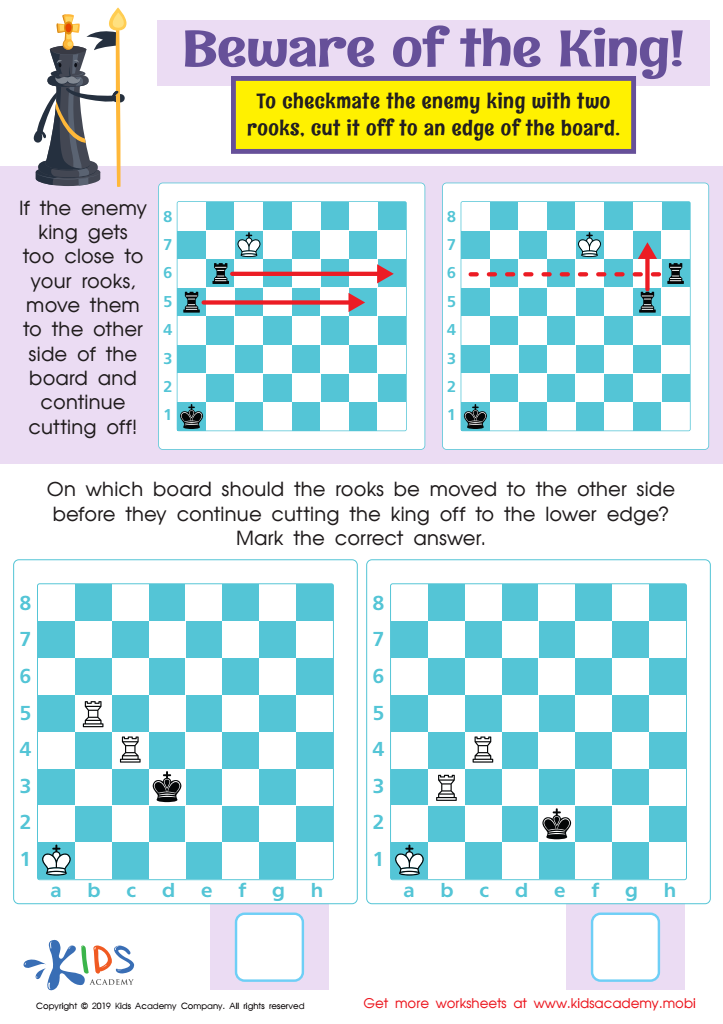

Beware of the King! Worksheet
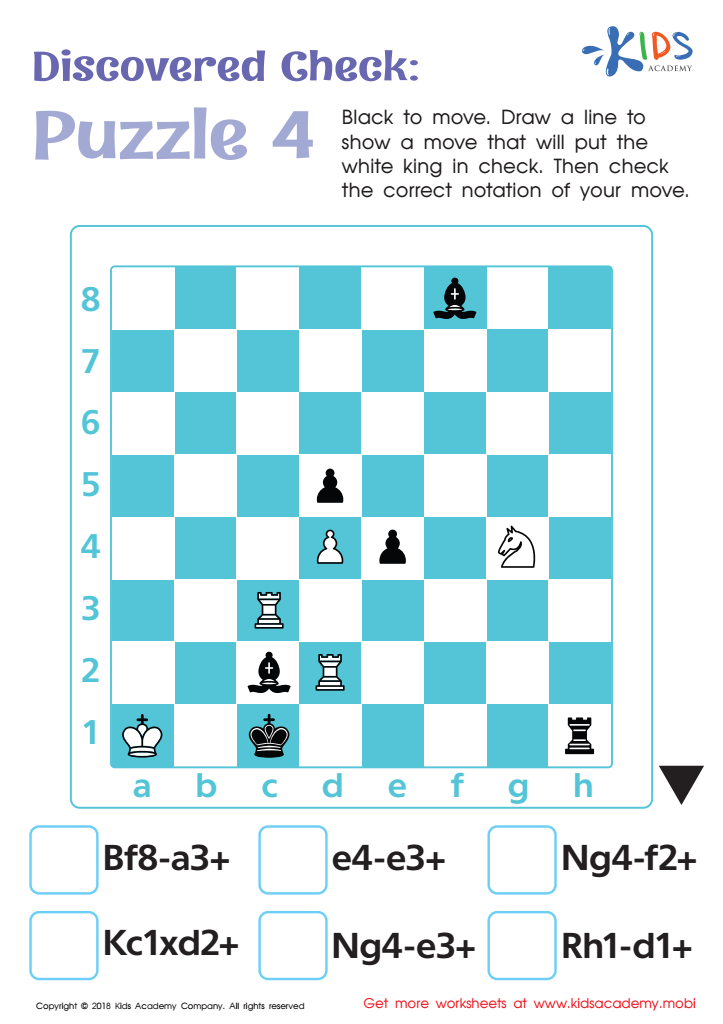

Discovered Check: Puzzle 4 Worksheet


Discovered Check: Puzzle 2 Worksheet
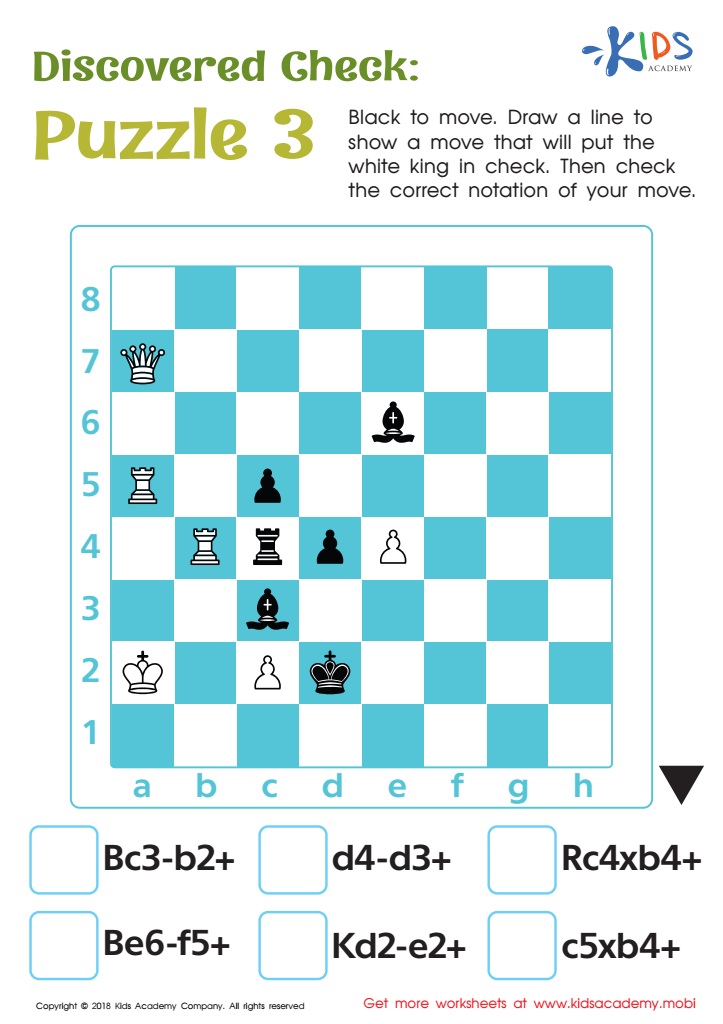

Discovered Check: Puzzle 3 Worksheet
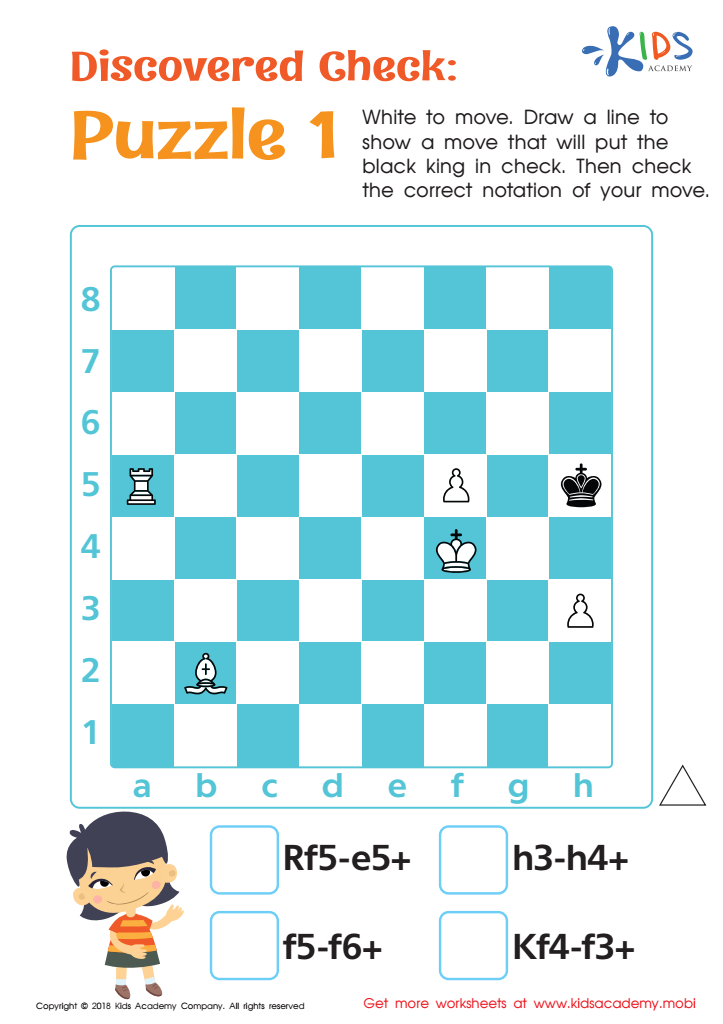

Discovered Check: Puzzle 1 Worksheet
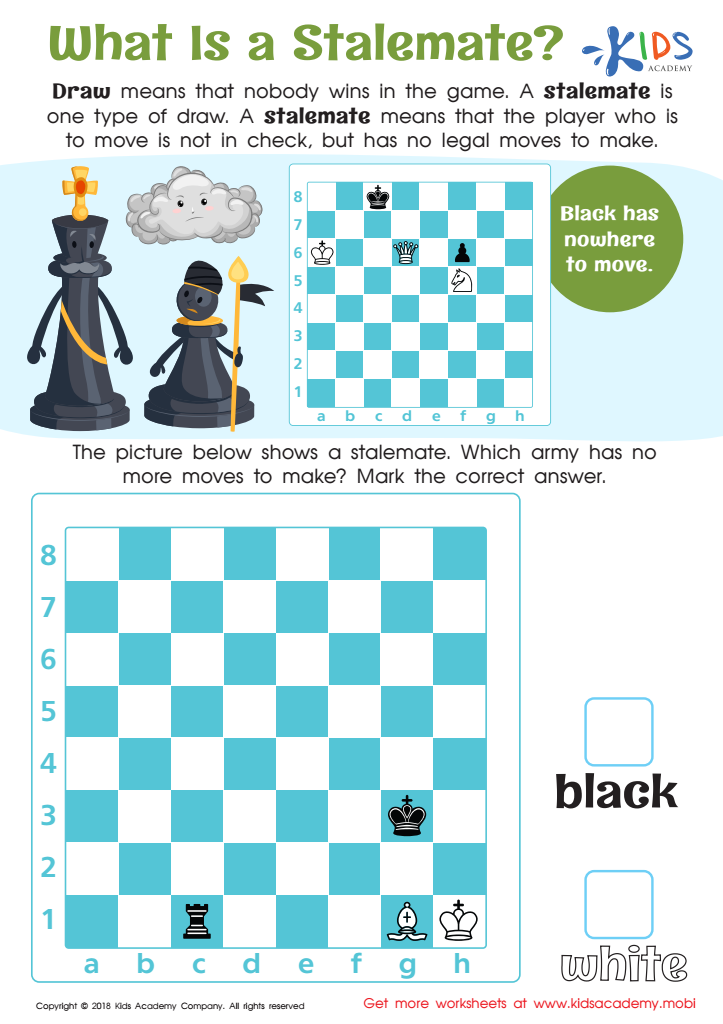

What Is a Stalemate? Worksheet
Parents and teachers should care about Easy Chess for Ages 6-8 because it provides a fun and educational platform to introduce children to critical thinking and problem-solving skills at a young age. Chess teaches strategic planning, as kids learn to think several moves ahead and anticipate their opponent's actions. By engaging in chess, children develop patience, perseverance, and resilience, valuable traits that benefit them in various areas of life.
Moreover, chess promotes cognitive development. Studies have shown that children who play chess tend to improve their mathematical and reading abilities, as the game encourages logical reasoning and enhances memory. It also nurtures social skills; as children participate in games or learn together, they practice good sportsmanship and learn to communicate effectively.
Easy Chess specifically simplifies the game's rules and strategies to cater to younger players, making it more approachable and engaging. This ease of understanding ensures that learning chess remains enjoyable, fostering a lifelong love for the game. With the world increasingly relying on skills such as problem-solving and critical thinking, introducing children to chess at an early age sets a strong foundation for academic success and personal growth.
 Assign to My Students
Assign to My Students















